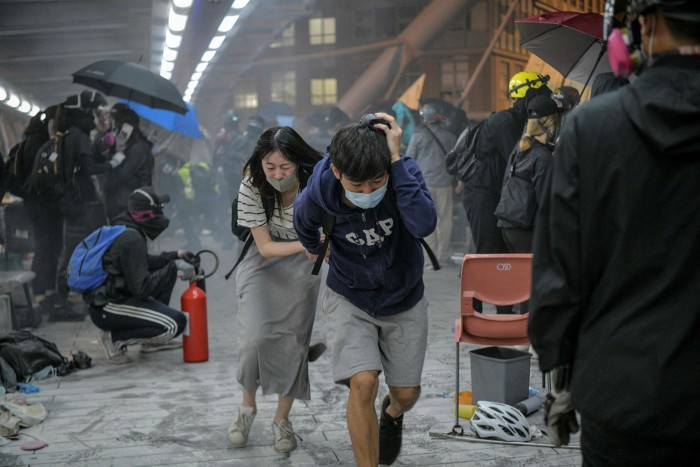Hong Kong Exodus
"The tightening of freedom affects our children. We picked this time to leave because it is the end of term for my elder son.""[No job yet, but] The most important thing is their [children] future."Jeffrey Lau, 32, relocated to theUnited Kingdom"There is a lower chance for them to come back [in the 2021 scenario than there was ahead of the 1997 return of Hong Kong to China].""[Those now leaving include middle-class families. They have more resources and therefore want to be able to choose their children's education."Paul Yip Siu-fai, associate dean, faculty of social sciences, University of Hong Kong"It's regrettable that we are leaving under these circumstances.""Originally, we had some hope that two million people protesting on the streets could be a starting point for Hong Kong to become better.""[But the government's reaction demonstrated it was] against [the people. The city was] not suitable for living, in every aspect, be it politics, the economy or social policies."Cheung (full name withheld)
 |
| Protesters run for cover as police fire tear gas on a university campus in Hong Kong in November 2019 Anthony Wallace/AFP/Getty |
The exodus from Hong Kong is picking up steam. Net outflows of residents exceeding a thousand a day in the last month, figures compiled by activist investor David Webb from government figures. This, despite pandemic travel conditions disrupting the normal flow of travel. Emigres are anxious to take up Britain's offer of safe haven that will be expedited toward citizenship for about five million residents of its former colony, in defiance of Beijing's precipitate crackdown.
About 300,000 Hong Kongers are expected by the U.K. government to decide on moving there, over a five-year span, to become one of the largest waves of migration that Britain will have experienced. People began making plans to leave the city state when Beijing-authorized authorities beat down on pro-democracy protests which began in 2019, sparked by a proposal for charging and extraditing people to mainland China.
A national security law curtailing freedom of speech followed, which has led to the violent arrest and imprisonment of dozens of pro-democracy activists. Thousands of Hong Kongers obtained foreign residency or passports from Canada and Australia in 1997 in trepidation over the handover from British rule to China when China contracted to preserve Hong Kong's financial status and autonomy for 50 years. Their mistrust of the CPC's intentions then have since been validated.
Hong Kong has been reshaped by the enactment of the security law which ended hope China would keep faith with its promise to preserve the city's freedoms until 2047. Dissent has now been criminalized backed by penalties of up to life in prison. Authorities, under the law, have banned songs and slogans hinting at freedom and democracy, and blocked the distribution of films considered subversive.
Hong Kong's electoral system was overhauled by Beijing in the prevention of pro-democracy candidates from gaining political power, barring government opponents from taking public office. Pension withdrawals surged in the past year. Those withdrawing retirement savings on departing the country must sign a declaration that states they will not return to work or live permanently in Hong Kong.
Carrie Lam, leading Hong Kong as the voice of Beijing "respects personal choices" that people make for their families; that the exodus is not viewed as a "big problem" since talented workers from the mainland and elsewhere in China are eager to migrate to Hong Kong where they can advance their careers. "People who are leaving will eventually realize how good Hong Kong is", she said.
 |
What happens when Covid travel restrictions come down? Photograph: Bloomberg |
Labels: Beijing, Leaving Hong Kong, United Kingdom

<< Home